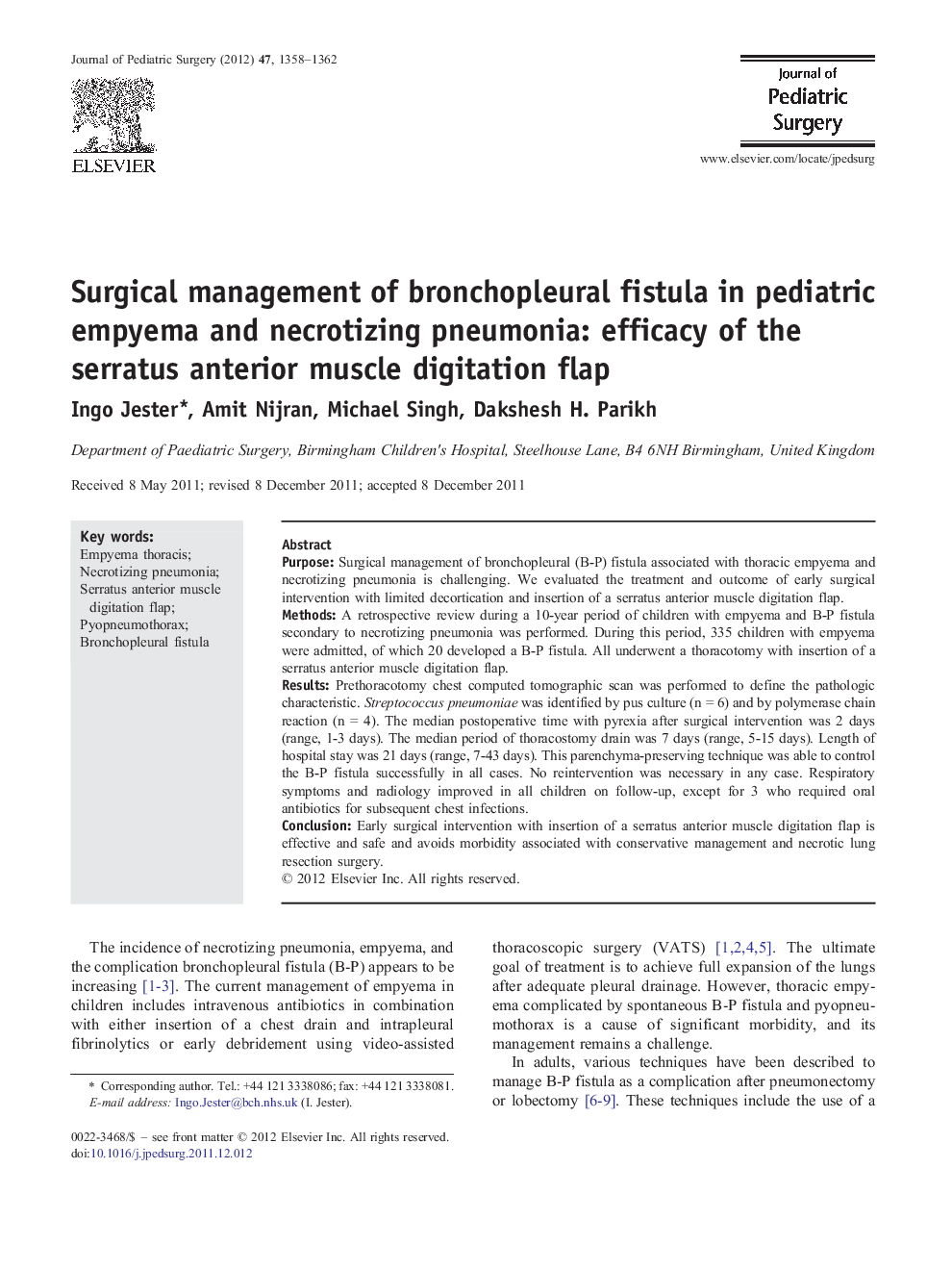| کد مقاله | کد نشریه | سال انتشار | مقاله انگلیسی | نسخه تمام متن |
|---|---|---|---|---|
| 4156815 | 1273781 | 2012 | 5 صفحه PDF | دانلود رایگان |

PurposeSurgical management of bronchopleural (B-P) fistula associated with thoracic empyema and necrotizing pneumonia is challenging. We evaluated the treatment and outcome of early surgical intervention with limited decortication and insertion of a serratus anterior muscle digitation flap.MethodsA retrospective review during a 10-year period of children with empyema and B-P fistula secondary to necrotizing pneumonia was performed. During this period, 335 children with empyema were admitted, of which 20 developed a B-P fistula. All underwent a thoracotomy with insertion of a serratus anterior muscle digitation flap.ResultsPrethoracotomy chest computed tomographic scan was performed to define the pathologic characteristic. Streptococcus pneumoniae was identified by pus culture (n = 6) and by polymerase chain reaction (n = 4). The median postoperative time with pyrexia after surgical intervention was 2 days (range, 1-3 days). The median period of thoracostomy drain was 7 days (range, 5-15 days). Length of hospital stay was 21 days (range, 7-43 days). This parenchyma-preserving technique was able to control the B-P fistula successfully in all cases. No reintervention was necessary in any case. Respiratory symptoms and radiology improved in all children on follow-up, except for 3 who required oral antibiotics for subsequent chest infections.ConclusionEarly surgical intervention with insertion of a serratus anterior muscle digitation flap is effective and safe and avoids morbidity associated with conservative management and necrotic lung resection surgery.
Journal: Journal of Pediatric Surgery - Volume 47, Issue 7, July 2012, Pages 1358–1362